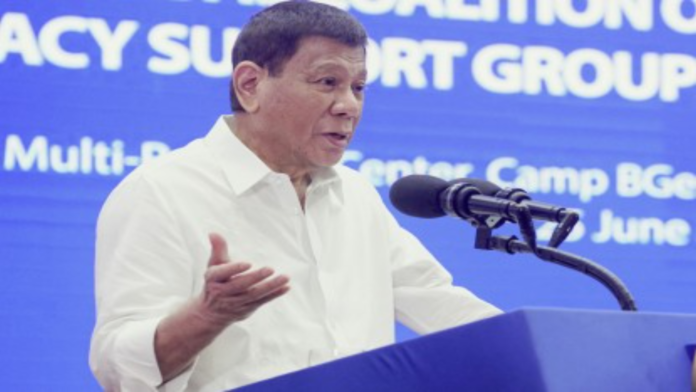As the sister of the president, Senator Imee R. Marcos said proposals to extend the term of elected officials will be deemed “self-serving” and “embarrasing” on her part.
“Parang nakakahiya naman, parang self-serving. Naka-upo kami tapos magpapa-extend kami hanggang forever? Huwag na! Nakakahiya (It’s embarassing, self-serving. We are in position and we will ask for an extension until forever? Never mind! That’s embarassing)!” Marcos said in an ambush interview after giving educational assistance to students of Universidad de Manila on Friday.
The senator admitted that she also saw some provisions of the constitution that need to be changed but thinks the plan of the House of Representatives and Senator Robinhood Padilla to push yet again for charter change is untimely.
“Hindi talaga tamang panahon. At saka nalalabuan ako doon sa sinasabi na people’s initiative sapagkat ang intindi namin ang proseso hindi ganyan (It’s really not the right time. And I am confused on what they are saying about people’s initiative because based on what we understand, that is not the process),” Marcos said, citing a Supreme Court decision that only minor changes are allowed in the constitution and the House of Representatives is not allowed to pursue charter change without considering the sentiment of the Senate.
“Talagang binasura na ng Senado dalawang beses itong mga bicam resolution. Ikatlo na ‘to so tingnan natin (These bicam resolutions were rejected by the Senate twice. This is the third time so let”s see),” she added.
In the Resolution of Both Houses of Congress No. 5 filed by Padilla, the President and Vice President shall be elected as joint candidates by direct vote of the people for a term of four years but can be reelected to serve two terms.
Padilla, who chairs the Committee on Constitutional Amendments, cited “the need to ensure a balance between leadership stability and democratic continuity.”
In a press briefing in Iloilo, House Speaker Martin Romualdez said they are eyeing a people’s initiative that would let voters decide if the House of Representatives and the Senate have to vote together or separately to consider proposals to amend the constitution. (PNA)


